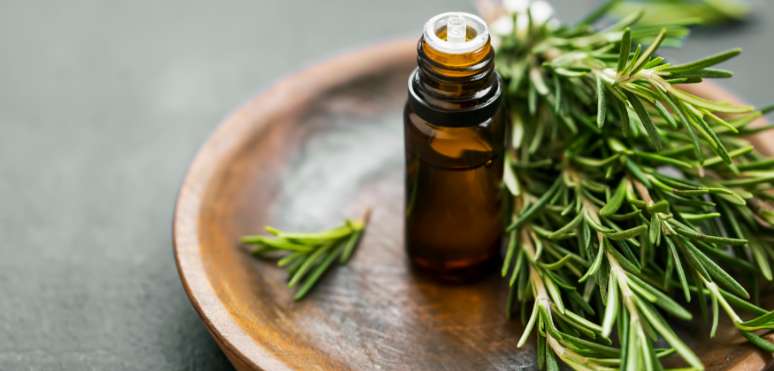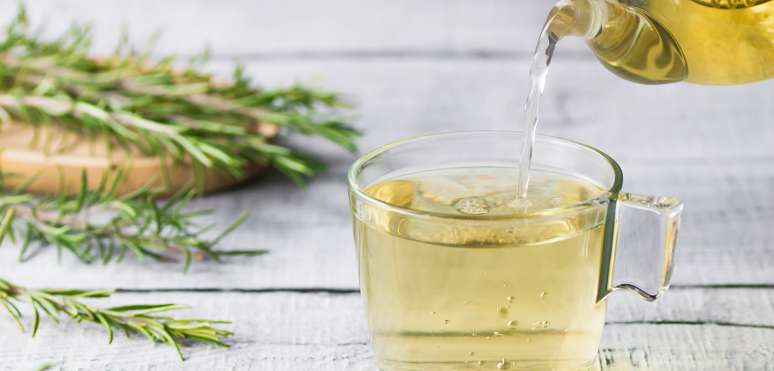An Introduction to Rosemary
Rosemary is a fragrant herb that carries a rich history deeply intertwined
with culinary, medicinal, and cultural practices. Native to the
Mediterranean region, rosemary is an evergreen shrub. Its aromatic leaves
and potential health benefits have made it a cherished herb across
centuries and continents. It has been traditionally used in treating
headaches, insomnia, depression, and has been used as an antispasmodic and
pain reliever.
The Benefits of Rosemary
Rosemary is renowned for its diverse range of potential health benefits.
Its leaves contain compounds such as rosmarinic acid and antioxidants that
contribute to its therapeutic properties. The active phytocompounds in
Rosemary are “responsible for implementing several pharmacological activities, such as anti-inflammatory, antioxidant, antimicrobial,
antiproliferative, antitumor and protective, inhibitory and attenuating
activities."
Rosemary has been associated with improved
cognitive function. Its aroma is thought to have stimulating effects on memory and mental
clarity. It can also aid digestion by promoting the flow of bile,
supporting healthy digestion, and alleviating occasional indigestion. The
anti-inflammatory and antioxidant properties of rosemary make it
potentially beneficial for managing inflammation and oxidative stress in
the body. Cosmetically, rosemary-infused oils are commonly used for
promoting healthy hair and scalp. It is believed to stimulate hair
follicles and reduce dandruff.
If supplementing with Rosemary, follow recommended serving sizes and
consult a medical professional prior.
Rosemary Formulas and Recipe Ideas

Rosemary in Culinary Dishes
Rosemary’s aromatic and earthy flavor makes it one of the most versatile
culinary herbs. It’s used to enhance the taste of various dishes, from roasted meats to
marinades and sauces. Fresh or dried rosemary can be added to a variety of
dishes, both savory and sweet, to impart its distinctive flavor such as
breads, pastas, pizzas, soups, and spice blends for meat, fish and
potatoes.
Wellness Applications for Rosemary
The scent of rosemary can be used in aromatherapy to promote relaxation,
mental clarity, and a sense of well-being. Create rosemary-infused oils by
steeping rosemary sprigs in carrier oils such as olive, jojoba, or almond
oil. These oils can be used for cooking, skincare, and hair care.
Rosemary Tea Recipe

FOCUS AND FLOW CLARITY TEA RECIPE
This tea blend uses
synergistic herbs
that help support focus, mental clarity and blood flow.
Instructions
- Blend equal parts of dried rosemary, gotu kola, and gingko leaf
-
Put the herbal tea blend in a
press ‘n brew tea bag
or tea strainer
- Steep in hot water for at least 5 minutes
- Sip and enjoy
Monterey Bay Herb Co.’s Sustainable Rosemary Supply Chain

Monterey Bay Herb Co. is proud to provide you with responsibly sourced
rosemary products
that uphold the highest standards of quality and ethical practices. For
the past 30 years, our producers have implemented environmental and social
sustainability into their business and growing practices. As a
cooperative, our farmers are supported financially. They are paid living
wages verified through an external audit. Our Rosemary is certified
organic, and all of its industrial waste is reworked to be used as compost
on its farms. It is grown predominantly in rural Morocco. Our sourcing
partner offers free training for all members of the growing cooperative,
especially for women. This provides continual educational and economic
growth opportunities for people living in rural communities.
Where to Buy Sustainably Sourced Rosemary
Monterey Bay Herb Co. strives to be the best sourcing partner for small
businesses who harness botanicals to create wellness in our world. Our
strict
sourcing sustainability standards
ensure that we can offer high quality ingredients that are consistently in
stock and our relationships with our sourcing partners guarantee you
competitive prices.